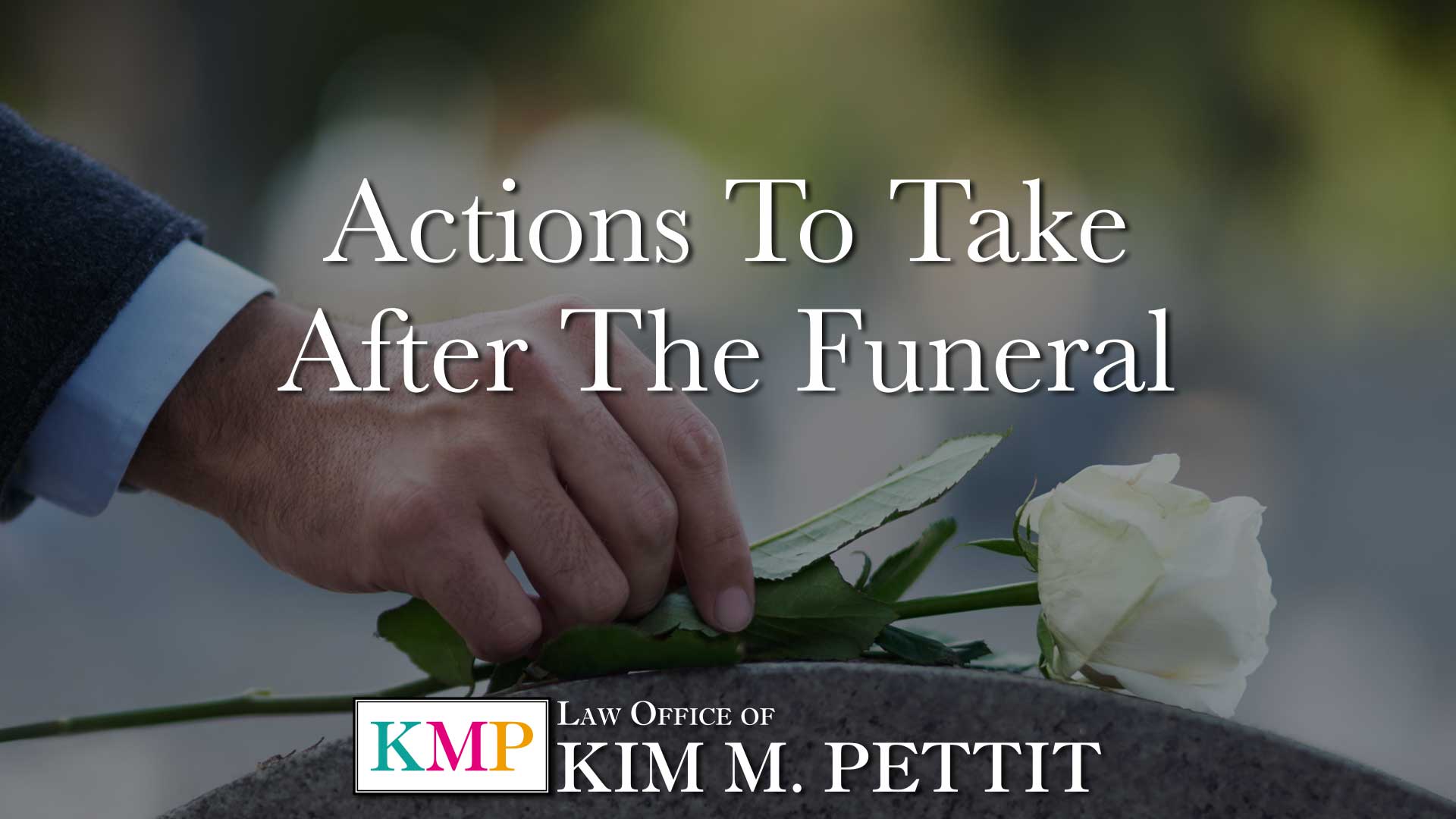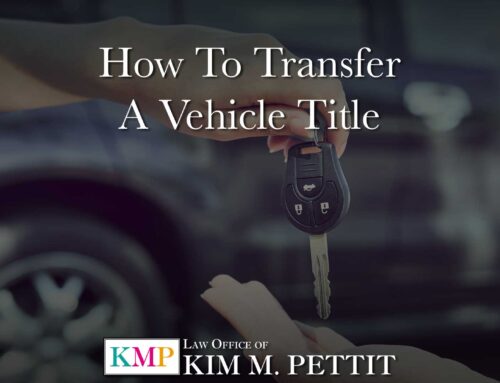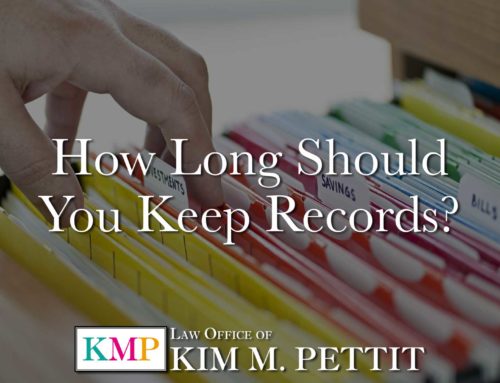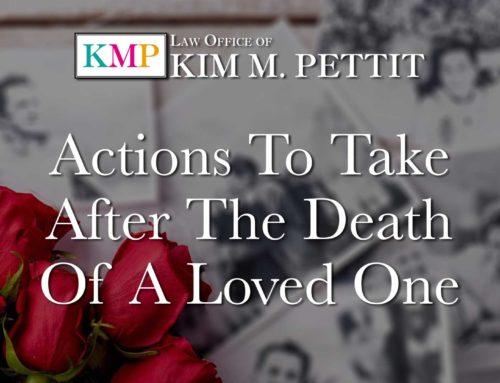So here you are. The funeral for your loved one is over. Things have started to settle down a bit. If it hasn’t already, the loss you’ve experienced is starting to become more of a reality. And your mind is beginning to drift to thoughts on the near future. Now what? What happens next?
AFTER THE FUNERAL, SOONER RATHER THAN LATER, YOU SHOULD DO THE FOLLOWING:
- Get Death Certificates. Get a sufficient number of duplicate death certificates, usually at least ten (10). The funeral director can help you with this, or you can get them from the vital statistics office in your city or county. In Texas, the fee is $21.00 for the first death certificate and $4.00 for each one after that.
- Send thank-you notes to people who attended the funeral or otherwise helped with the funeral (pallbearers, provided food or flowers, donations, etc.).
- Notify the local Social Security office. Usually, the funeral director will do this for you. If not, call 1-800-772-1213 or contact the local Social Security office. If the person was receiving Social Security benefits, those payments will stop as of the first day of the month when the person passed away. Repayment may be required. Be sure to ask the Social Security office about survivor benefits.
- Notify Medicare. If the person was receiving Medicare, the Social Security office will notify Medicare of the person’s death. If the person was enrolled in Medicare Prescription Drug Coverage (Part D), Medicare Advantage Plan, or had a Medigap policy, contact those plans using the phone numbers on the membership cards to cancel the insurance.
- Find the person’s important documents:
- Will
- Birth certificate
- Social Security card
- Driver’s license
- Marriage license
- Military discharge papers (DD-214)
- Deed to burial property
- Life insurance policies
- Retirement account statements
- Bank statements
- Credit card statements
- Tax returns
- Consult an attorney. If the person had a will, the will may need to be probated. If the person did not have a will, an heirship proceeding and a dependent administration may be needed.
- Notify life insurance companies and obtain claim forms. You will need to get the policy numbers and provide a copy of the death certificate. If the person was a beneficiary on a policy, have the person’s name removed as a beneficiary.
- Notify health insurance companies. File any outstanding Medicare or health insurance claims. Stop coverage for the person, but continue coverage for the person’s dependents (if applicable).
- Once property (house, car, etc.) is sold, cancel homeowner’s, automobile, and other insurance coverage.
- Notify the registrar of voters to remove the person’s name from the voter list.
- Cancel subscriptions (magazines, newspaper, online services, etc.).
- Cancel prescriptions.
- If the person’s home is unoccupied, cancel unnecessary services, such as cable service, newspaper delivery, telephone service, etc. If the home is occupied, change the name on the account.
- Determine if there was any life insurance coverage through credit card accounts, loan accounts, or the person’s employer.
- Obtain a copy of the person’s credit report. Be sure no fraudulent accounts were opened.
- Cancel email and website accounts (Amazon, PayPal, etc.).
- Cancel memberships in organizations.
- Close credit card accounts if the accounts were in the person’s name ONLY. You will need to contact each creditor and may have to provide a copy of the death certificate. Be sure to ask that interest charges and late fees that occurred after the date of death be waived. Keep a written record of everyone you spoke with, including the date and time, the exact name of the person you spoke with, his or her telephone number, and what was discussed. DO NOT use the credit cards. If you are a joint account holder with the person, you should pay the accounts as they become due.
- Cancel the person’s driver’s license and transfer titles of all vehicles registered in the person’s name. You should contact a probate attorney about transferring the vehicle titles as well as title to other property.
- Make a list of all of the person’s bills (mortgage, car loans, credit card accounts, other loans, etc.) and obtain a copy of the most recent statement and/or account balance. If the bills are in the person’s name ONLY, DO NOT pay the bills until you talk with a probate attorney. You are not personally liable for the person’s bills. However, if you are jointly liable for the bills, you should pay them as they become due.
- Notify all financial institutions and mortgage companies.
- Change ownership of all joint accounts.
- Gain access to the person’s safe deposit box or home safe and inventory its contents.
- Consult a tax professional about tax returns and possible estate taxes.
- Get a tax identification number for the estate. Click here to get this number.
- Open a checking account for the estate after you get a tax identification number for the estate.
- Contact the person’s financial advisers, retirement account administrators, stockbrokers, etc.
- Locate the following documents:
- Real estate deeds and automobile/motorcycle/boat titles
- Stock certificates
- Loan paperwork
- Bank and retirement account statements
- Last 4 years of tax returns
- Notify all creditors in writing that the person passed away.
- Make an inventory (including photographs, if possible) of all property (real estate, personal property, etc.) owned by the person on the date of death.
- Identify all claims owed TO the person on the date of death, such as loans to family or friends, but do not include claims owed BY the person. Claims owed by the estate will be the bills described above.
Let me help you with your and your family’s planning. If you are considering a will, medical power of attorney, directive to physicians, or a declaration of guardian for yourself or your children, please call the Law Office of Kim M. Pettit at (210) 558-4572 or request a consultation below. I look forward to helping you.
If you’re looking for info about what to do before the funeral, read my previous post, Actions to Take After the Death of a Loved One.






